The best graphic novels of 2023, from broken families to a duckling called Norbert
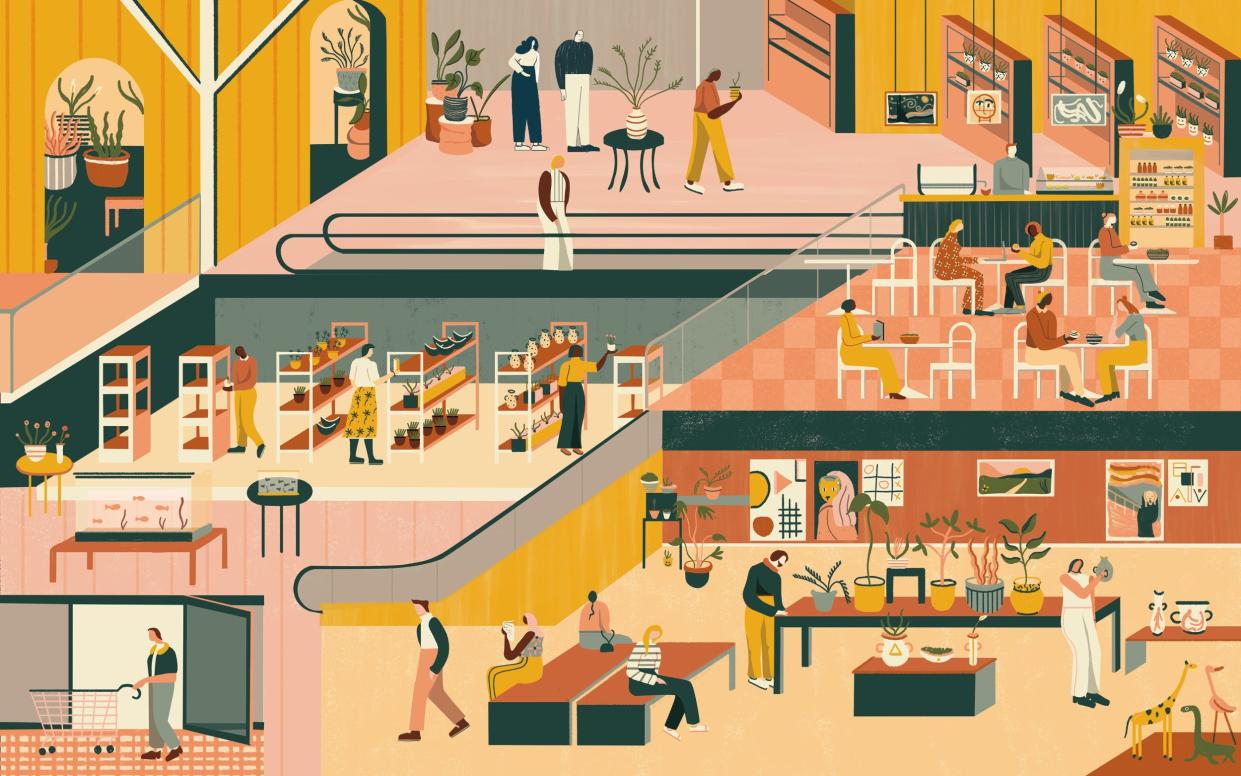
Some of us don’t watch tele-vision, and this is fine. Some never go to the theatre; different strokes. Some never listen to music; de gustibus, etc. Me? I avoid West End musicals. But to boast that you never do X or Y, to wear it as a badge of honour, or declare the whole art form beneath one’s notice, is the pride of the worst sort of prig. And yet: that’s still a view you hear about graphic novels.
The problem might be that the form is still so young. Until quite recently, it wasn’t unfair to assume that most comics revolved around superheroes and detectives, kids’ jokes and talking animals. When did things change? When did people start calling them “graphic novels”, and taking them seriously?
Thirty years ago, I reckon, with Daniel Clowes’s Ghost World, arguably the first naturalistic “literary” graphic novel to go mainstream. Some had challenged conventions before then: Alan Moore upended superhero stories in his dark satire Watchmen; Art Spiegelman forced us to take talking animals seriously in the harrowing Holocaust tale Maus. But Ghost World didn’t try to subvert existing tropes – rather, it blithely ignored them. A novel (and later an Oscar-nominated film) about two cynical girls mooching toward adulthood in a nameless American town, it didn’t fall into any of the obvious genre silos – and when a novel does that, critics have no choice but to call it “literary”.
Clowes has now broken seven years’ silence with Monica -(Jonathan Cape, £20), and shaken things up once again. By the last page, you may still be trying to figure out what sort of a book it is. It’s partly a nuanced cradle-to-grave story of one woman, Monica, who yearns to find out more about her parents, partly a critique of hollow American ideals from Vietnam to today, via the creepy side of 1960s flower-power and 1970s cults. (Monica’s hippie mother – who soon disappears – raises her among an “avalanche, an endless cascade of hirsute suitors and freaky flatmates”.) And it’s partly a love letter to the schlock genre comics Clowes grew up with, from its art style and pacy storytelling to the motley off-whites of the paper it’s printed on, which changes shade from one chapter to another. (There’s a subtle narrative reason for the colour--coding; no detail in this book is an accident.)
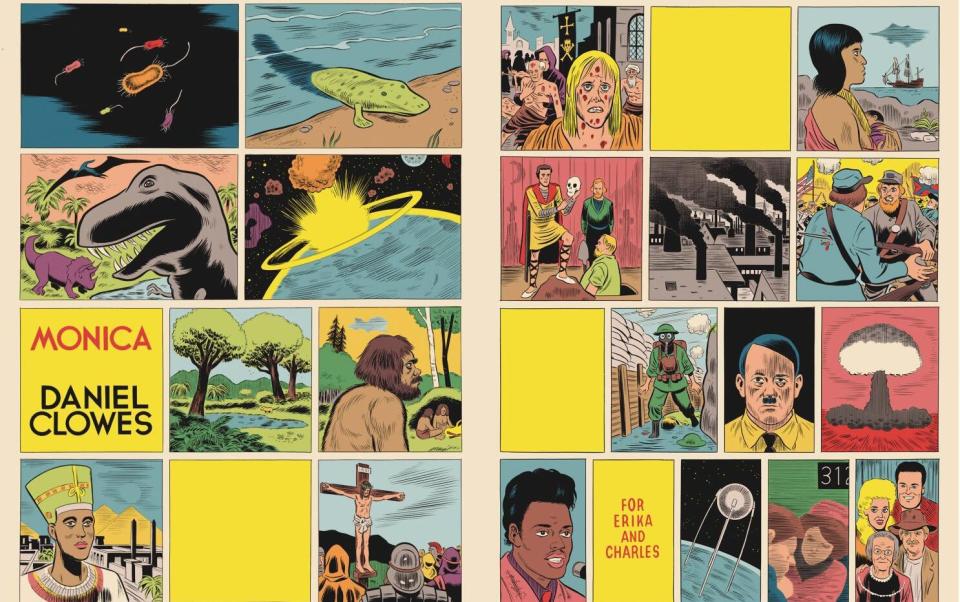
We get a ghost story, supernatural historical fiction, a detective tale, a conspiracy thriller: some might be “real”, some might be stories-within-stories, written or imagined by Monica, whose memories are unreliable. The first chapter, in the style of 1960s war comics, ends abruptly with a GI’s description of a terrible dream: “The world opens. Like a wound in the soil.” It plants a seed of Lovecraftian dread that builds throughout.
We can’t resist stories, Clowes suggests; even a nightmarish one might be more alluring than the thought that life has no meaningful narrative arc at all – an idea also dangled by Emily Carroll’s gothic psychological thriller A Guest in the House (Faber, £18.99), which might or might not be a ghost story. Abby, a housewife in Canada, tries hard to love her distant stepdaughter and her dentist husband, but begins to harbour doubts about how his first wife died. Abby’s waking life is bland monochrome, but her psychedelic, fairy-tale nightmares throb with blood and neon; she longs to escape into them.
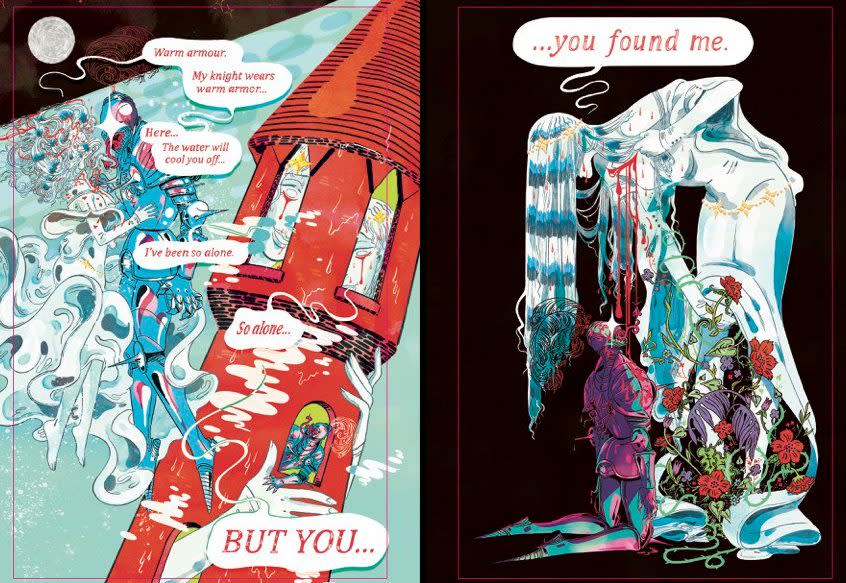
By contrast, Erik Svetoft’s ghoulish Spa (Fantagraphics, £34.99) is all black-and-white and all nightmare from its eerie first line. A vacant-looking man and woman stand in an apartment that we later notice is strewn with corpses. “Do we live here?” he asks, blankly. “I guess so,” she replies. They chat idly about booking “one of those lovely relaxing weekends”, before decamping to a “lovely” spa-hotel. There are luxury steam rooms and fluffy robes – just ignore the black tendrils leaking from the walls. Genuinely funny and genuinely frightening, it’s Spirited Away meets Eraserhead, with a festering dollop of body-horror.
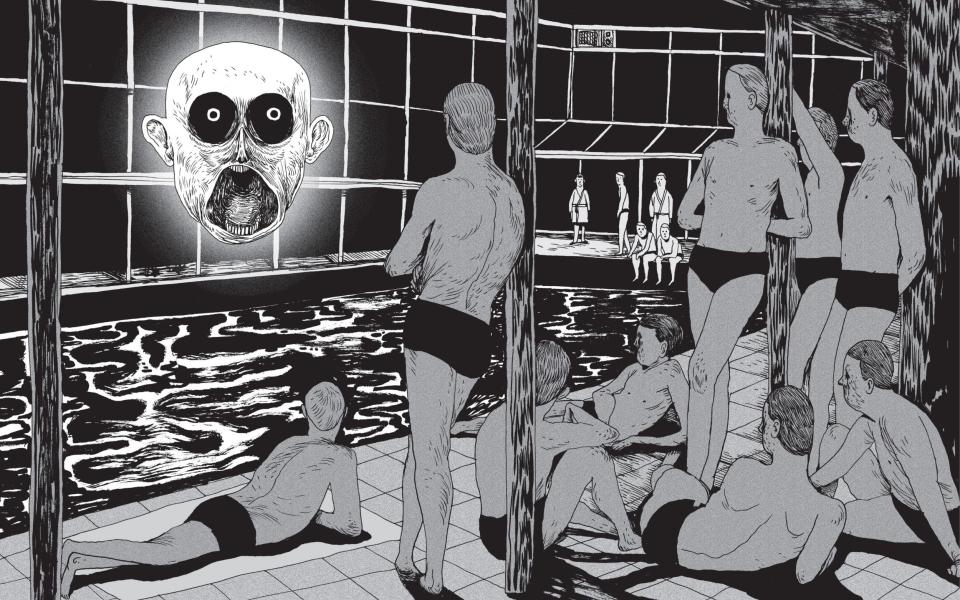
People who claim reading comics as an adult is a sign of arrested development – well, they might have a point. So many of this year’s most memorable graphic novels have been about children estranged from their parents. The mum and dad in Paul B Rainey’s Why Don’t You Love Me? (Drawn & Quarterly, £18.99) – drawn like an old Family Circus-style newspaper strip – can’t recall their two toddlers’ names, and barely bother to clothe or feed them. Why would anyone be so awful? We find out. What begins as black absurdist comedy becomes an allegory for depression and mental illness, and then, heartwarmingly (if less compellingly), a Sliding Doors cross-timeline love story.
Not every narrative has to be so formally tricksy. Architect-turned-illustrator Owen D Pomery’s rollicking The Hard Switch (Avery Hill, £15.99), in which three explorers eke out a living salvaging a rare mineral from wrecked spaceships, is straightforward sci-fi, halfway between classic Star Wars and the rusty, ramshackle world of Firefly. Pomery’s delightful art style is close to the ligne claire of Tintin, but with everything very faintly rumpled. I loved it, but it’s over far too soon, leaving a dozen threads dangling. Give us a sequel!
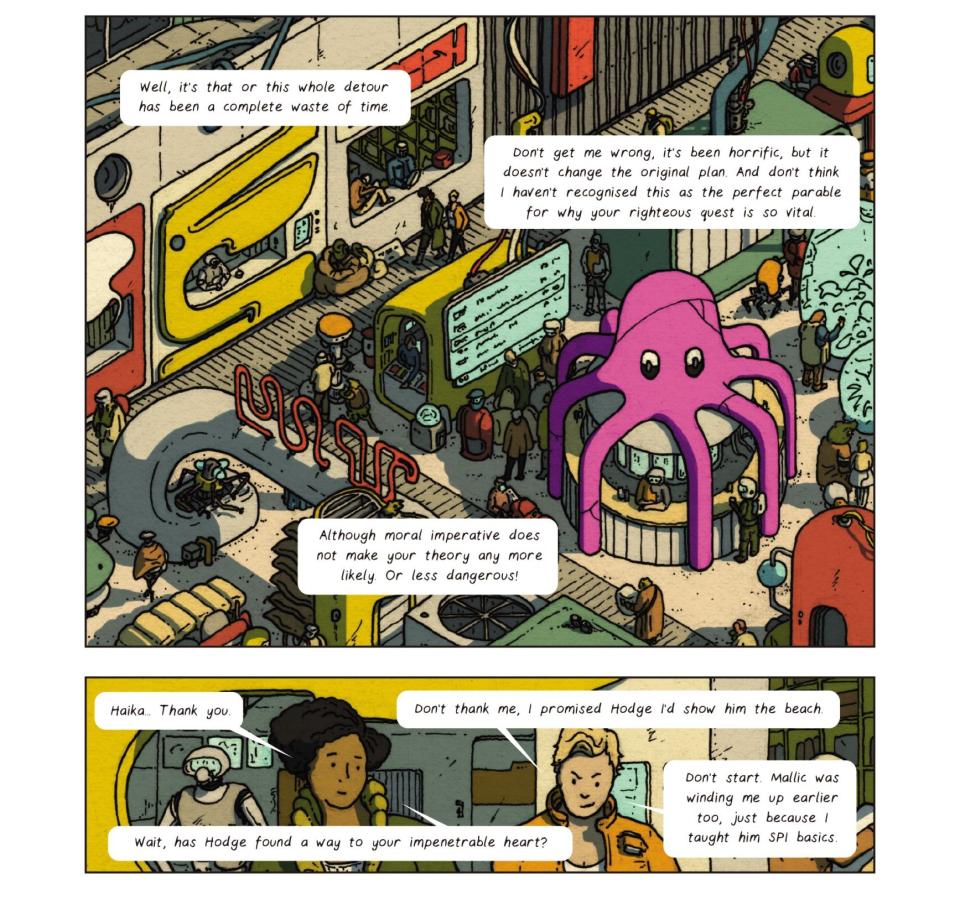
Comics have rarely been less comic than 2023’s unusually dark crop. Half those I’ve read end with an apocalypse, which makes the wry understatement of Big Ugly (Avery Hill, £14.99) all the more admirable. It’s a sweet-and-sour slice of life by Ellice Weaver, best known for her gorgeous illustrations for newspapers and magazines (including The Telegraph). With a Clowesian balance of vulnerability and snark, it follows a 30-something brother and sister who find themselves living together after falling out with their father, and slip back into their squabbling childhood dynamic, as siblings often do. They’re catty and kind, hopeless and hopeful, passive-aggressive and occasionally just aggressive. Weaver asks if people can ever really change, and smartly leaves the answer up for debate.
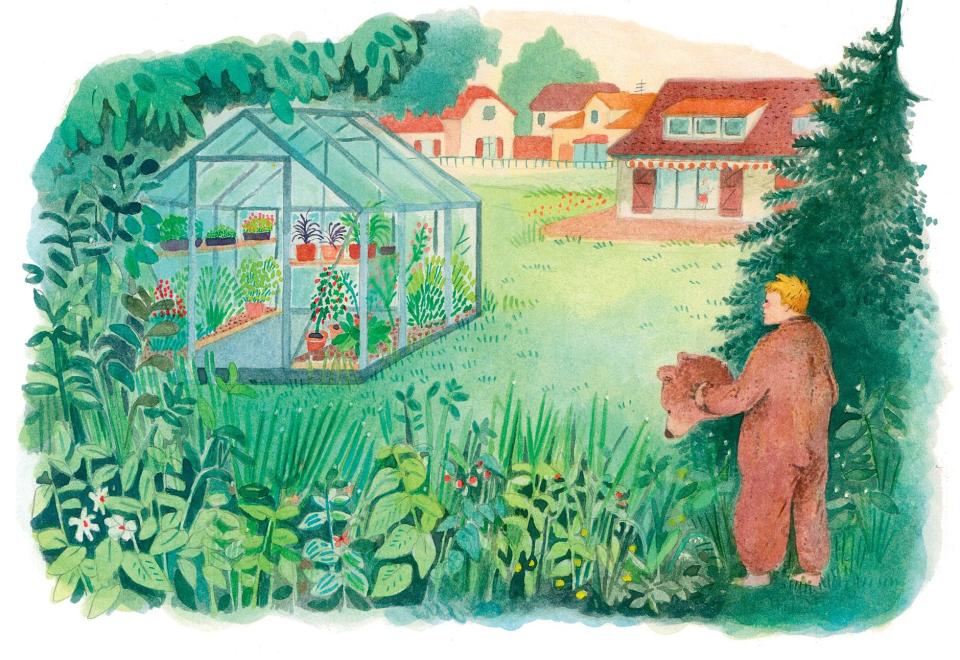
There’s a similar soft restraint to Camille Jourdy’s utterly lovely Juliette (Drawn & Quarterly, £23). Anxious Juliette travels from Paris to visit her bickering but loving family in a small French town. We meet a large cast of locals, watch as they make love and flans, and while away the evenings in a cluttered bar. A lonely bachelor adopts a duckling and calls it Norbert. It’s so pleasingly unhurried; Jourdy gives over whole pages to empty streets in springtime, or still lifes where you can almost feel the sunlight hanging in the air. And then Juliette leaves. Life continues. If you think comics aren’t your tasse de thé, this one might change your mind.
To order these books at a discounted price, call 0844 871 1514 or visit Telegraph Books
